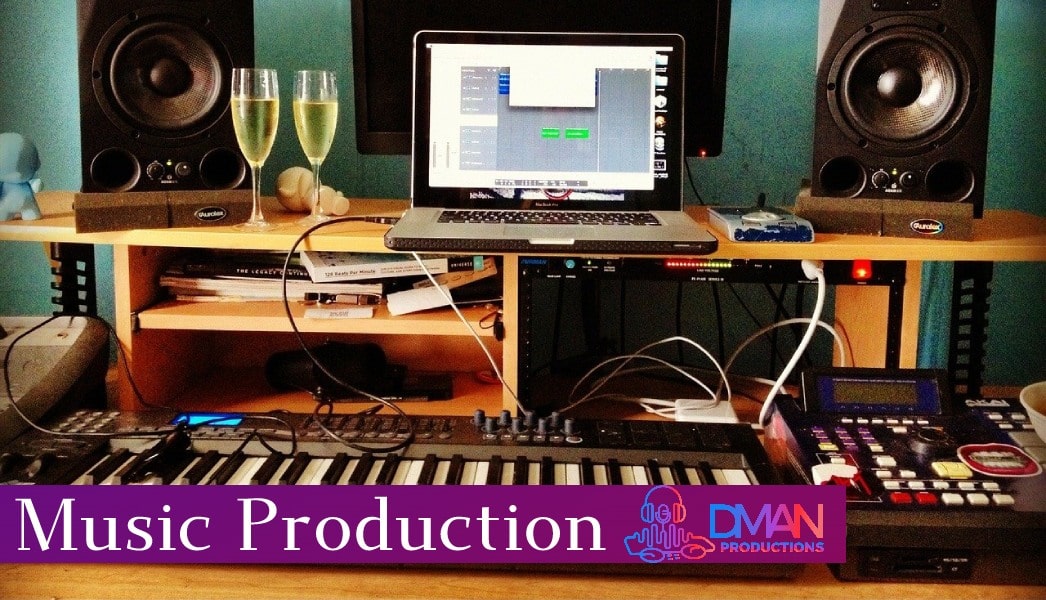
Though the exact music production procedure may vary from one producer to another, the fundamentals always remain the same. If you plan to create music, you should have a sound knowledge of the various stages of production. The more you know about music creation and the more you refine your craft, you will be able to improve workflow and increase productivity. Making music is not just about being creative, but it also involves technical aspects. Producers who master the art of moving between the creative and the technical aspect will be able to focus on every stage of the music production process in a proper manner.
Given below is the step-by-step procedure that you should apply in order to complete your music projects successfully.
Musical Idea
You need a musical idea to begin. Like any other project, you need to conceptualize and come up with a unique idea.
It is a unique idea that ultimately makes a project successful. You can generate the idea from past events or personal experiences. This ensures that music you are going to create will be made in a certain type of way. Therefore, at this stage, you should think about how you will create the music and what kinds of instruments you will use and what the overall theme will be. You need to use your creativity and imagination in order to develop an idea that resonates.
Composition

At this stage, you start to turn your idea or concept into reality. You need a melody or tune you can proceed with. For many producers and musicians, composition means humming a particular tune or writing down a song or both. The idea is the foundation of the song you will produce. Composition refers to building upon that foundation so you have something concrete to work with. You need to think about melody, tempo, harmony and rhythm to give shape to the song.
Typically, the stage involves the following:
- Consideration of the song keys, tempo, harmony, time signature etc.
- Selection of instruments that will be used
- Creation of the main chord progression, melody, counter melody etc.
- Developing the basic beat
- Selection and creation of complementary harmonic layers
- And a lot more …
This is where you will need basic knowledge of music theory including the methods and concepts that producers use. At this stage, you will need to experiment with ideas based on the fundamental concepts of music. The purpose here is to shape up the basic music elements that go together.
3. Arrangement
The intro, verse, bridge, chorus and outro need to be arranged. This means you will place these in a clear and consistent manner. That is exactly why we call this stage of music production arrangement.
If the musical ideas do not have coherence and logical flow, you are not yet ready to move on to the next step. So, you first collect all the different musical components in one place and then arrange the components in a proper manner for easy understanding of the audience. The arrangement should be done in a way that feels like various steps of a journey, from start to finish. Unless the song is well-arranged, it will fail to grab and retain the listeners’ attention.
If you are a new song maker or lyricist, it is advisable for you to stick to a particular structure of your selected genre.
4. Tracking
This is one of the most challenging stages of the music making process. The record producer captures the song in a way that maximizes performance. Song makers and beat makers also have a lot of fun doing the tracking. At this stage, it is time for the producer to record the musical instruments and vocals into the DAW. Most music producers record a song one track at a time. To record every new track, the producer listens to all the previous records. The musician starts recording with the drums and then moves to the bass. Finally, the record producer records the lead instrument in order to formulate the melody.
The record producer is at full liberty to record whichever part he wants to record first. That is what creativity is all about. Before recording the best performance, the musician may need to do multiple takes.
5. Editing
This is the stage where the recorded audio goes through a process of manipulation for all individual parts to fit together.
Using a professional audio editing software, the producer adjusts the length, speed and volume of each part of a track. So, he needs to drag, drop, cut and trim as well add or subtract instruments. The musician or the music engineering professional works with small details at this stage. That is why it is also easy for many producers to get caught up in the complexities. If you do not have ample experience, audio editing will be a difficult and complicated task.
Therefore, the trick for newbies is to keep things simple and get the editing part done without getting deeply involved in it. If you need expert help editing the tracks, reach out to D Man Productions, which is an online music production company specializing in R&B and Hip-Hop genres.
6. Mixing

Audio mixing involves working with and adjusting several layers of audio in order to achieve the desirable sound and effect. Mixing of audio tracks is not about creativity, but about technical aspects.
At this step, the music producer balances the audio levels, compresses, equalizes and cleans up transitions among other tasks. To create a perfect final track, the professional locates and fixes problems as well as adds effects. In addition to these, the process of mixing also includes automation and editing sounds in innovative ways. The producer makes sure that instruments do not overlap in the least. Mixing is carried out with the use of various tools such as EQs, compressors, volume faders and reverbs. The purpose is to create a final sound that is balanced and free from any kind of unwanted tracks. However, it is important to remember that mixing is not something that can turn bad vocals into good vocals.
Some of the most crucial characteristics of a good audio mix are depth, width and height. Proper mixing makes the final track sound balanced and emotional to the listeners. Mixing is the stage that turns a collection of audio tracks into a song that sounds good to the ear.
7. Mastering
This is the concluding step of the music production process. Mastering involves taking the mix or the song and getting it ready for public use. The mixing or sound engineering professional prepares the song for distribution in a wide range of media formats such as audio CD or digital file. Regardless of whether the public wants to download it or stream it on a hi-fi system or using headphones, the product should sound perfect and give the listener the most precise interpretation.
Mastering aims to lend the song a good stereo image and make sure all the elements sound cohesive. Most of all, the mixing engineer ensures that the track has adequate commercial loudness.
Music Production: Frequently Asked Questions [FAQ]
Hopefully, you have understood what music production involves. Given below are some of the most commonly asked questions about making music or recording a song for your further understanding.
Q: What do I need to do to learn music production?
A: In order to learn music production, you should first familiarize yourself with the various musical instruments and then know the basics of music theory. When you want to create music or an album, you will have interaction with sound engineers, audio engineers and musicians. A person without proper training can also make music, but the final product will lack quality.
Q: What equipment does a music producer use?
A: Professional Music producers and sound engineering professionals use a complete set of advanced equipment. Basic equipment includes computer, digital audio workstation (DAW), MIDI controller, audio interface, microphones, headphones and audio monitors among others. Though equipment is essential, what actually makes a difference is the skill and expertise of people who use them. At D Man Productions, we have a highly proficient team of music producers, studio and audio engineers who are known for creating heart-capturing music.
Q: Is a music producer the same as a musician?
A: In simple words, yes. The essential role of a music producer is to take a song from a lyricist or songwriter and turn it into a song that connects with the audience on an emotional level. In fact, a music producer hires and works with musicians as well as often plays the role of a musician himself.
Q: I want to record a song. Where should I begin?
A: If you have a project you want to start, feel free to reach out to D Man Productions in Kansas City, Missouri, for a discussion with one of our music producers. You can give us a phone call or write us an email.
Q: What is the role of an audio engineer in a session?
A: The main role of an audio engineer is to record music or voices including the right set of machinery. In a recording session, the engineer can play additional roles as per the specific needs of the artist. So, depending on the situation, the audio engineer can play the role of a producer or a co-producer or simply record the audio while focusing on the technical side of music production.
Q: Are producers also sound engineers?
A: Most of the producers start their career as sound a engineer and then work their way up as they continue to master the craft. So, music producers are not just good audio engineers, but they are also good audio editors. In most song recording studios, you will see producers multi-task.


